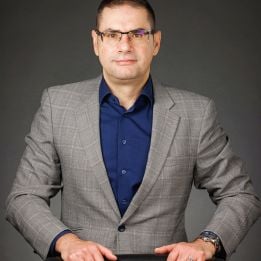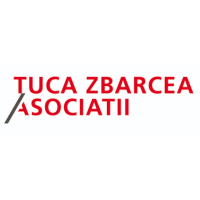

Head of Legal Department, IT, Digital & Innovation, Business Development, Renewables & Major Constructions | Engie Romania




Cristian Buzan
Head of Legal Department, IT, Digital & Innovation, Business Development, Renewables & Major Constructions | Engie Romania
Career Biography
I currently hold the position of Executive Vice President (deputy CEO) – Engie Romania in charge of Renewable Energy, Legal, IT, Digital & Innovation and Business Development since 2021. Therefore, I lead directly the Legal Department of Engie Romania.
Previously, I was Managing Director of ENGIE Servicii and ENGIE Building Solutions (starting in 2015) and Legal Director of GDF SUEZ Energy Romania (since 2010).
I have been with Engie since 2010, after 14 years of experience as a lawyer in the field of Legal and Business Administration. My past professional experience includes executive jobs in Michelin Romania & Balkans region (Legal & Public Affairs Director between 2002 – 2010), and Tax & Legal Manager in E&Y (1997-1998) and KPMG (1998-2002).
I am a graduate and have a PhD in business relationships from the International Business Faculty-Academy of Economic Studies, Bucharest and in law from the Law School-University of Bucharest, Romania. I also hold a Master of Arts in Business Administration from the University of Lille, France. As mentioned, I have had an international career with various secondments abroad, notably in France for KPMG & Michelin.
My main areas of legal expertise include M&A, corporate law, commercial law, and disputes, but also cross disciplines as project financing and tax law. I am currently focused on green energy domain, having a strong reputation in green PPA build up, EPC and O&M contracts. My long-time double role (operational and legal) & polyvalence allows me a unique opportunity to create value added for my managerial career. I am intimately convinced that management is primarily a people’s issue, therefore I am focused on building up teams’ motivation and momentum. My credo is that the success of a team resides mainly in skills, cohesion, diversity, and determination.
I currently lead about 150 people out of which the Legal department consists of about 25 in house lawyers and an ecosystem of about six to ten external law firms.
What are the most significant cases, projects and/or transactions that you and/or your legal team have recently been involved in?
During the past five to six years (since Covid, which was an experience in itself that had to be managed properly), I have led my teams through various, diverse projects, spanning all energy areas covered by Engie Romania: gas and power networks, gas and power sales, trading, renewable energy, gas storage and energy solutions. Over the past four years, I have led more than 15 M&A projects for assets in all aforementioned areas, notably renewable energy and storage, with assets ranging from €5m to €800m. I have managed M&A processes for gas and power sales (client portfolio acquisition), the sale of a large client solution entity and permitting of a pipeline of renewable projects reaching €1bn.
I also managed litigations (with a portfolio of more than 1000 cases), including civil, regulatory and commercial cases ranging from €0.5 to €75m, and more than 50 criminal cases involving delicate and complicated settlements with civil parties. I took part in international arbitrations in gas trading for values ranging from €10m to €100m.
How do you approach managing legal aspects during periods of instability or crisis to ensure the organisation’s resilience?
My approach is primarily twofold. First and foremost, build and maintain your credibility as a true business partner. Being an in-house lawyer means being at the heart of safeguarding and protecting the company’s legal interests BUT also promoting and helping its business. You simply cannot have one without the other.
Secondly, but equally critical, is building around you a team of professionals (an ecosystem with internal and external counsel) that helps you in achieving your role. This is not a one person show, irrespective of one’s level of competence. Today’s business environment – especially energy, which is so volatile and dynamic – means that having a team of competent colleagues is a must: having and maintaining them. This comes through constant motivation and sharing with them a vision and a purpose, which help federate this team around you.
Looking forward, what trends do you foresee in the legal landscape over the next 5–10 years that companies should prepare for?
I think that the geopolitical context today is a very turbulent one and seems that these patterns are here to stay. Therefore, companies should be prepared to operate in that famous VUCA (volatility, uncertainty, complexity, ambiguity) world which, five to six years ago, seemed more like a theoretical concept aimed to please consultants but now risks becoming a reality. In a nutshell, recent global developments — trade tensions, sanctions, and supply chain disruptions — have increased uncertainty in the energy sector. In my dual role, I have seen these factors directly impact renewable development and storage projects, particularly in procurement and financing. But not only this. For legal, in particular, it means; Energy Transition Regulation: the implementation of EU Green Deal, RED III, and Romania’s offshore wind and storage frameworks will increase permitting complexity and ESG obligations. There will be an explosion of regulatory (even over statal) issues which are very difficult to deal with.
Other key trends include: cybersecurity and data protection, as NIS2 and GDPR enforcement will tighten with the digitalisation of grids and storage accelerates; AI in legal operations, with the growing adoption of AI for contract review and compliance monitoring, which has potential efficiency gains for our legal team; dispute resolution, which requires proactive strategies to manage rising litigation and arbitration in supply chain and price adjustment disputes; and Corporate Sustainability Reporting (CSRD): legal oversight will be critical to ensure accurate ESG disclosures and avoid greenwashing risks.
AI has been taken seriously as a potentially revolutionary technological change in the legal world for a number of years now. Has it had a meaningful impact in how your legal team works in this time?
With the focus on reducing costs and enhancing efficiency (in parallel with navigating these turbulent waters), AI could be beneficial if used wisely.
AI can monitor regulation (including sanctions): AI tools can track EU and Romanian legislative changes (e.g., RED III, CBAM, NIS2) and alert the legal team in real time. AI-driven compliance platforms can continuously monitor counterparties for sanctions or trade restrictions, reducing exposure to geopolitical risks.
It can also be used for smart monitoring and contract review. Legal tech can generate first drafts of standard agreements, reducing turnaround time. AI can flag deadlines and compliance obligations across multiple projects. Document search and summarisation is another key use. AI can quickly extract key clauses from thousands of documents, improving response times – which is already done on a large scale.
AI can also assess litigation risk and function like an early warning system; help in reporting, including for ESG purposes; and operational efficiency: internal AI assistants can answer routine legal queries for business teams, freeing up lawyers for strategic work (like a legal chatbot).
My legal team is already using AI, not only Copilot and GPT, but also automated legal trackers, building up legal databases (on the concept of SharePoint), drafting basic contracts and standard clauses.
AI is a tool for which we should prepare for the future. This future is very uncertain, but we might say that AI will be predominant. Legal teams must embrace tech or risk falling behind.
Global regulations will tighten, making cyber resilience and data governance non-negotiable including, most probably, ESG obligations. Legal has a crucial role in dealing with these matters. Sanctions, trade restrictions, and supply chain disruptions will demand agile compliance systems and real-time monitoring tools. With all this volatility we can expect a rise in litigation around supply chains, ESG claims, and AI liability. Arbitration and proactive risk management will dominate. Hybrid legal teams, and AI-powered workflows will be the new trend.